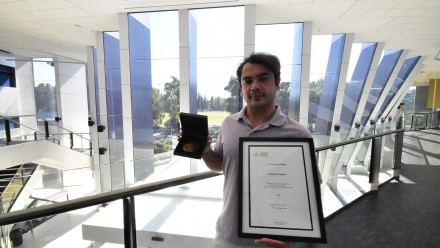Understanding the role of platelets in lung cancer
Dr Emma Josefsson, Laboratory Head, Cancer and Haematology Division, Walter & Eliza Hall Institute of Medical Research in Melbourne, Australia.
Lung cancer is the leading cause of cancer related death in Australia, and the poor prognosis for the majority of patients highlights the importance of developing improved treatment options.
Platelets are essential for haemostatic maintenance, however, mounting evidence suggests a further role in cancer progression. Our research aims to increase our understanding about the changes that occur in platelets during lung cancer progression in order to identify selective ways to target tumour-promoting properties, while preserving essential platelet functions.
Dr Josefsson was born in Gothenburg Sweden and received her PhD in 2006 from the University of Gothenburg studying platelet cold storage and glycosylation in a Harvard affiliated laboratory at Brigham and Women’s Hospital (Boston, USA) with Prof Hoffmeister and Prof Dahlgren. During this time she contributed to work published in Science and Nature Medicine.
Following a post-doctoral fellow position in the same Harvard laboratory, she joined Prof Benjamin Kile at the Walter & Eliza Hall Institute of Medical Research (Melbourne, Australia) in 2008 for post-doctoral work on the regulation of the apoptotic machinery in megakaryocytes and platelets and in 2011 she was appointed Laboratory Head. She and colleagues discovered that megakaryocytes must actively restrain apoptosis in order to produce platelets. This work was published in the Journal of Experimental Medicine, Blood and Nature Communications and she was awarded the Walter & Eliza Hall Institute 2014 Burnet prize.
Her laboratory investigates platelet production and function in health and disease, with special focus on the role of platelets in cancer. She recently received the Pamela and Lorenzo Galli Centenary Fellowship in cancer research.












